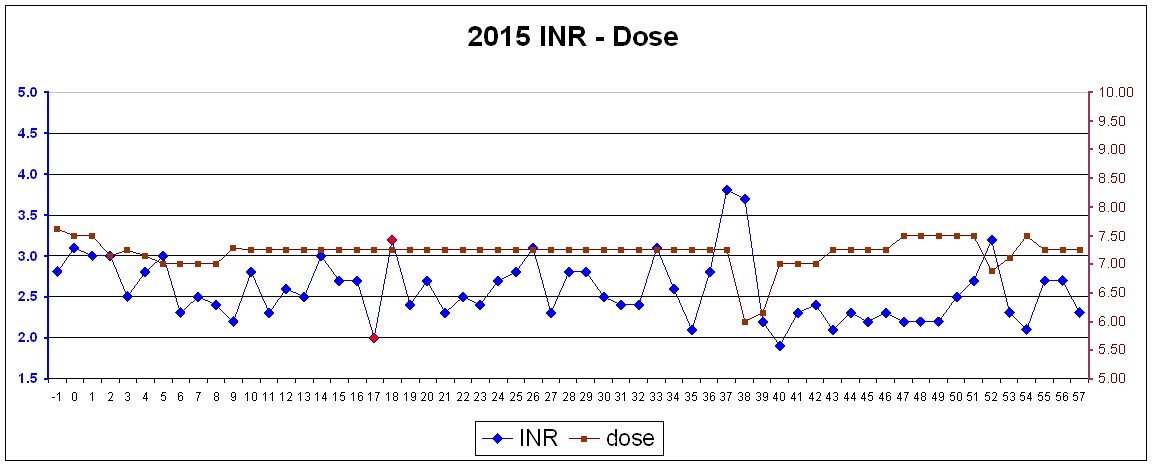Warfarinking
Well-known member
Hi,
I was reading about super foods and stumbled upon Flax seeds/Chia seeds. These seeds are typically really high in Omega-3, a fatty acid that can possibly interact with coumadin medication?
I've gotten really into working out and running (130lbs down so far) and every morning I usually drink a protein shake as my breakfast, which brings me back to the seeds --- doe anyone know if Flax seeds / Chia seeds interact with Coumadin? I would love to add them to my shakes.
My current shake:
2 scoops of Whey Optimum Nutrition Protein
Half cup of blue berries
4 Strawberries frozen
1 Banana
1.5 cups of Almond Milk
1/2 cup of raw oatmeal
and now, I would like to add these seeds into my daily shake.
I don't see my Coumadin doctor for another week. Any feedback would truly be appreciated.
I was reading about super foods and stumbled upon Flax seeds/Chia seeds. These seeds are typically really high in Omega-3, a fatty acid that can possibly interact with coumadin medication?
I've gotten really into working out and running (130lbs down so far) and every morning I usually drink a protein shake as my breakfast, which brings me back to the seeds --- doe anyone know if Flax seeds / Chia seeds interact with Coumadin? I would love to add them to my shakes.
My current shake:
2 scoops of Whey Optimum Nutrition Protein
Half cup of blue berries
4 Strawberries frozen
1 Banana
1.5 cups of Almond Milk
1/2 cup of raw oatmeal
and now, I would like to add these seeds into my daily shake.
I don't see my Coumadin doctor for another week. Any feedback would truly be appreciated.




